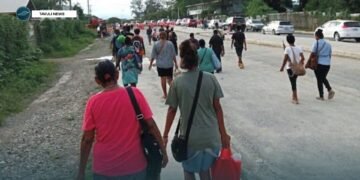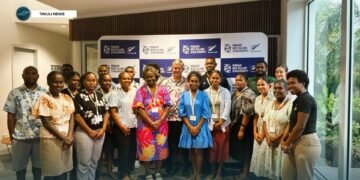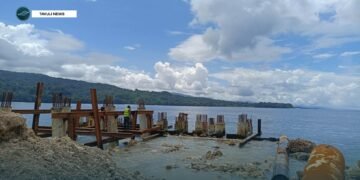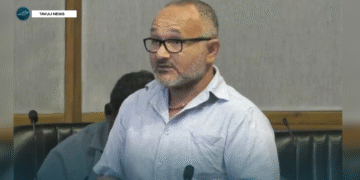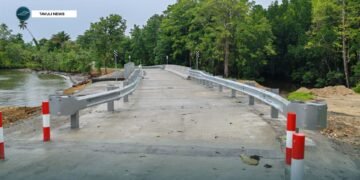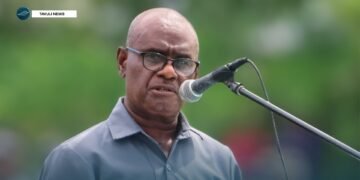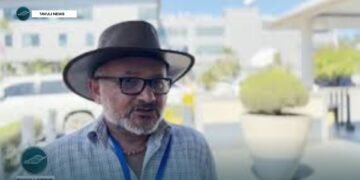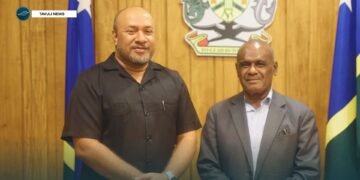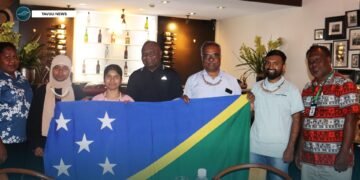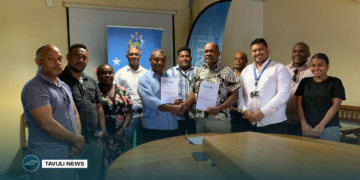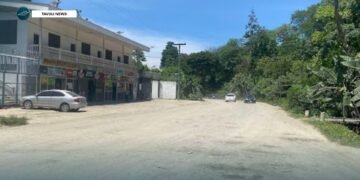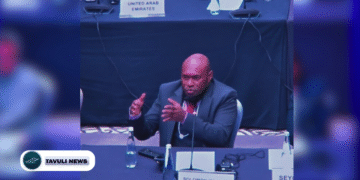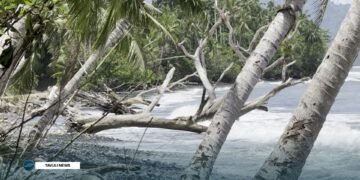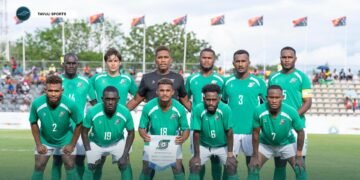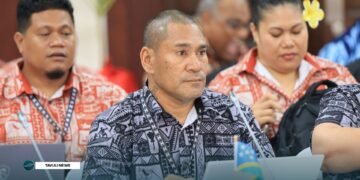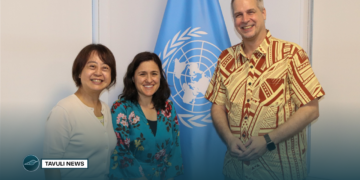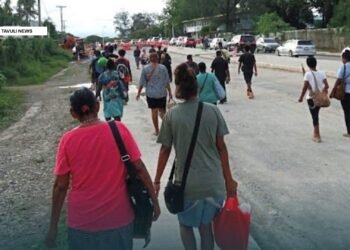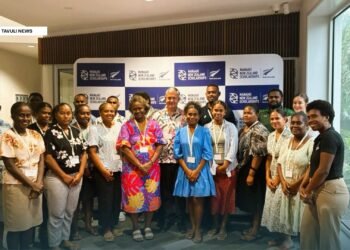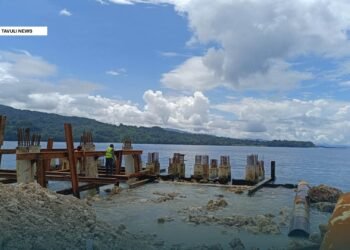Solomon Islands supports WHO regional plan to strengthen climate change and health system resilience




The Solomon Islands Ministry of Health and Medical Services (MHMS) Minister Dr. Paul Popora Bosawai strongly endorsed and supported the Draft Regional Implementation Plan for Climate Change and Health at the WHO Western Pacific Regional Committee’s 76th meeting currently being held in Nadi, Fiji.
In his intervention statement on Climate Change and Health Systems Safety and Resilience, Dr. Bosawai said, “Solomon Islands strongly endorses the draft regional implementation plan for climate change and health.”
Dr. Bosawai stated that the Solomon Islands’ nationally coordinated response is guided by the National Climate Change Policy (2023–2032), which identifies health as a priority sector for adaptation. He explained that the Ministry of Health and Medical Services has embedded climate resilience through its Health National Adaptation Plan (H-NAP), demonstrating leadership as the first sector to develop a dedicated adaptation plan in parallel with the Ministry of Environment, Climate Change, Disaster Management and Meteorology’s national adaptation planning process. This joint approach builds on existing mechanisms through cross-sectoral collaboration with civil society organisations, government ministries, national academic institutions, and development partners.

“Our commitment to building climate-resilient and green health facilities is tangible, and we recognise the health sector’s accountability to reduce its carbon footprint while maintaining quality care. With support from development partners, it is our aim that our provincial hospitals embark to operate on hybrid power systems. In 2025 alone, 18 facilities, including area health and rural health centres in remote areas, have been equipped with solar-powered systems to support communication and ICT tools, ensuring even the most isolated communities remain connected and prepared. The ongoing upgrade of DHIS2 (District Health Information System 2) will enable integration of weather data, enhancing our capacity for climate-informed health surveillance and early warning for decision-making.”
“We are building a climate-smart health workforce through integrated professional development at national, provincial, and community levels, training both public health and clinical personnel in climate-sensitive risk management. As I speak, our teams are preparing to be on-site in the most remote and climate-impacted province, delivering training and building capacity where it is needed most, ensuring frontline health workers are empowered to protect their communities,” said Dr. Bosawai.
He emphasized that the Solomon Islands supports the establishment of regional partnership networks for the Alliance for Transformative Action on Climate and Health (ATACH) and remains committed to contributing to the region’s ambitious targets for climate-resilient, low-carbon health systems.
“Together, let us weave our health strategic initiatives to mitigate climate change impacts across the Western Pacific region to save the lives of our people and the future of our children,” said Dr. Bosawai.

Meanwhile, the Health Minister is leading the MHMS delegation, including Health Permanent Secretary Mrs. Pauline McNeil, National Referral Hospital Chief Executive Officer Dr. George Malefoasi, Guadalcanal Provincial Health Director Dr. Rayboy Seleso, and Health Communication Officer Ms. Esther N. Tuita. The delegation is currently attending the Seventy-sixth Session of the World Health Organisation Regional Committee Meeting for the Western Pacific Region, which commenced yesterday in Nadi, Fiji, and will conclude on Friday.
SOURCE : Ministry of Health and Medical Services

